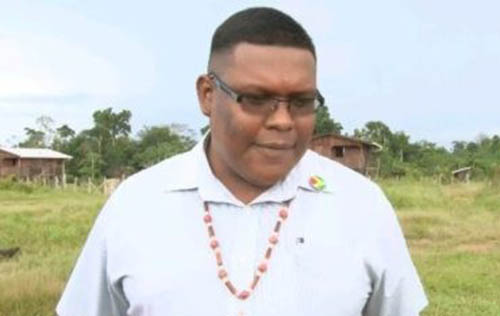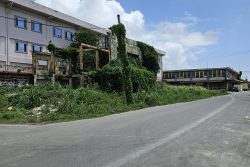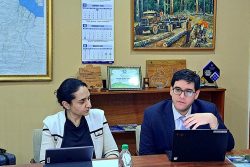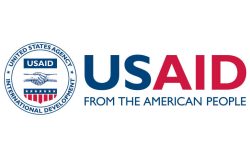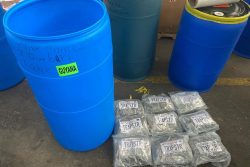Constant attacks by the notorious Syndicato gang have forced hundreds of Venezuelans to flee and seek refuge in Region One communities, putting the Region under severe financial pressure as authorities struggle to provide food and shelter.
The sudden influx of migrants in the region has also resulted in the increase of COVID-19 cases.
Regional Chairman Brentnol Ashley says the increase in migrants is of major concern to the Regional Democratic Council (RDC) as well as central government, disclosing that a high-level joint services team is currently in the area assessing the situation and that border patrols have since increased.
In an interview with the Sunday Stabroek, Ashley said that several days ago the RDC received reports from Smith Creek in the Mabaruma sub-district that approximately 120 Venezuelan migrants suddenly appeared in the community seeking refuge.
The following days would see an increase of even more Venezuelan migrants not only in Smith Creek, but in other border communities such as White Water, Yarakita, Imbotero and Canal Bank.
Based on the last update which was provided a few days ago, Ashley said that there are more than 100 migrants in White Water and 57 in Yarakita. He did not provide a number for the other communities. He noted that the sudden increase of migrants in the region is concerning given the sensitive issues surrounding the Guyana- Venezuelan border controversy.
Since confirming the sudden increase of migrants in the region, Ashley said he has alerted the International Organization for Migration (IOM), the United Nations High Commissioner for Refugees (UNHCR), the Government, the Civil Defence Commission (CDC), and the Joint Services.
“Everyone is on alert and they have beefed up patrols on the border so that we get a sense of who is coming and where they are going. As I speak there is a high level Joint Services team in the region currently doing some assessment in the frontline border communities within the region,” he said.
He noted that most of the migrants are adults with only a few coming over with their entire families. He stated that Guyana’s land borders are currently closed as a result of the COVID-19 pandemic but they will do their best to aid the migrants with food and shelter although with the National Budget not yet passed, the region does not have the resources to house or feed migrants if more people cross over. However, at this time they are doing whatever they can to make the migrants comfortable.
Ashley disclosed that currently many of the migrants are living in abandoned houses in the Indigenous communities close to the border. He added that when asked, some of the Venezuelan migrants said that they are trying to escape the hardships in the Venezuela, while many others said that they are being terrorized by the Syndicato gang and have fled in fear for their lives. In addition, he said, the Venezuelans claim that the gang is raiding farms and making high-priced “demands” from them.
Another official who did not want to be named revealed that the migrants do not have the necessary items required to survive and this is putting a strain on the communities that are accommodating them. He said because of the pandemic, many of these communities are suffering financially and are under even more pressure now that their populations have increased.
“They [Venezuelan migrants] have no food, nothing. Many of these communities are already suffering financially because of the pandemic,” he said.
Another major area of concern regarding the presence of the migrants is the COVID-19 pandemic. Over the last few days, according to Ashley, the region has seen an increase in COVID-19 cases originating from the migrant population.
He said that several persons who recently came over to Guyana from Venezuela have tested positive for the disease. When health authorities are alerted of their presence, Ashley said, the migrants are screened and tested for COVID-19 if necessary.
In the past two days, he disclosed that over 100 persons were tested for the disease, so they are expecting an increase in positive cases.
The Regional Chairman said that there are isolation facilities and if needed, the Ministry of Health has promised to provide assistance.
Presently the region is trying to establish screening points at the various crossings that are being used by the migrants in hopes of preventing another outbreak within the area.
